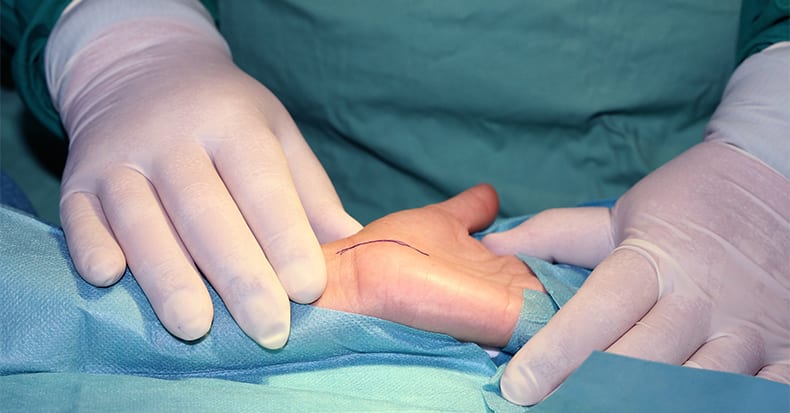Carpal tunnel syndrome (CTS) often responds well to non-surgical care and there is good evidence supporting chiropractic treatment for CTS. But the question frequently arises, “When should I consider surgery for my CTS?” Let’s take a look…
CTS is basically the pinching of the median nerve as it travels through a tight tunnel at the wrist. The causes of CTS are many and include mechanical (trauma like fractures, sprains or strains, ganglion cysts, spurs from arthritis, tendonitis from overuse), metabolic (obesity, pregnancy, hormone replacement and birth control pills, diabetes, hypothyroid), inflammatory (overuse, work, playing an instrument, hobbies), and more.
When it comes to surgery, each case MUST BE individually assessed. The factors that increase one's risk for needing surgery to resolve their CTS include: 1) EMG/NCV evidence of axonal degeneration (nerve damage); 2) muscle atrophy or shrinkage of the thumb pad; 3) acute onset after trauma (especially in fracture or dislocation of the wrist); and 4) after ALL non-surgical attempts have been tried.
Many reading this article may be surprised that CTS can actually be treated without surgery, given the popularity of surgery for this condition. Further, many may also be surprised that chiropractic can be VERY effective in managing CTS and studies have often demonstrated such care performs as well as or better than standard medical care, without the potentially serious side effects associated with some medications that may be prescribed for the CTS patient.
Non-surgical treatment offered by chiropractors may include manipulation and mobilization to the wrist (and the neck, shoulder, and elbow if nerve impingement in these areas contributes the CTS symptoms), as well as stretching exercises multiple times during the work day, taking mini-breaks, workstation modifications, an anti-inflammatory diet with supplementation, and more.
The BOTTOM LINE is you can always have surgery, so make sure you’ve exhausted ALL your non-surgical options before resorting to surgery!



